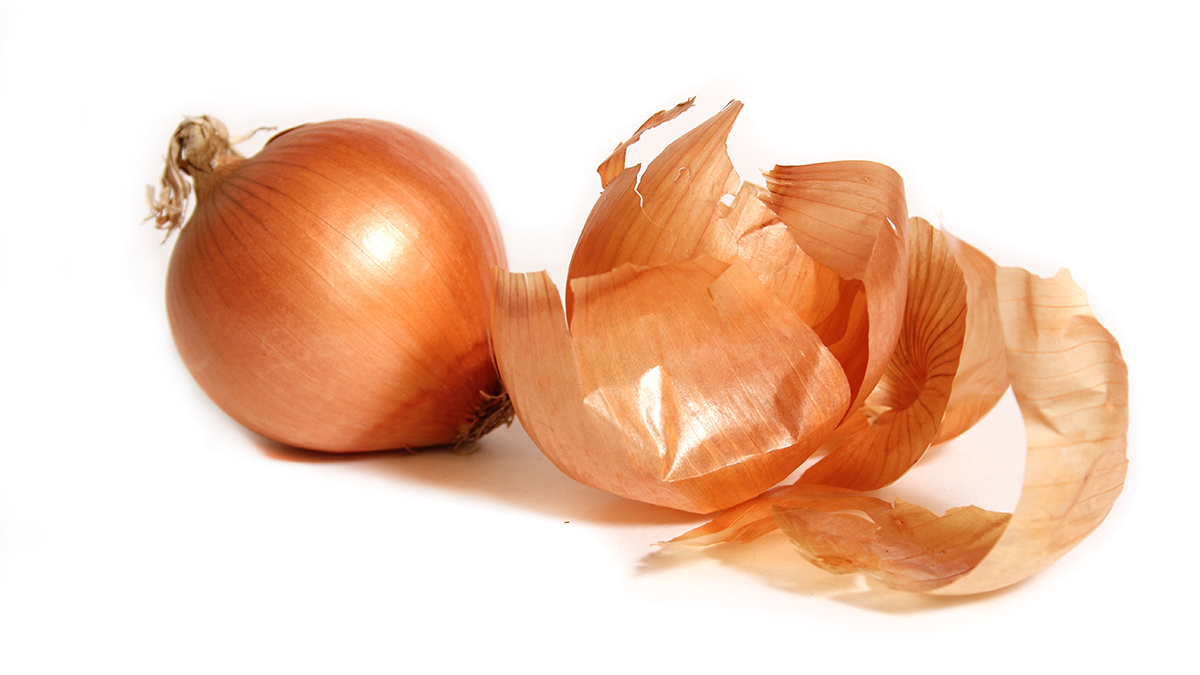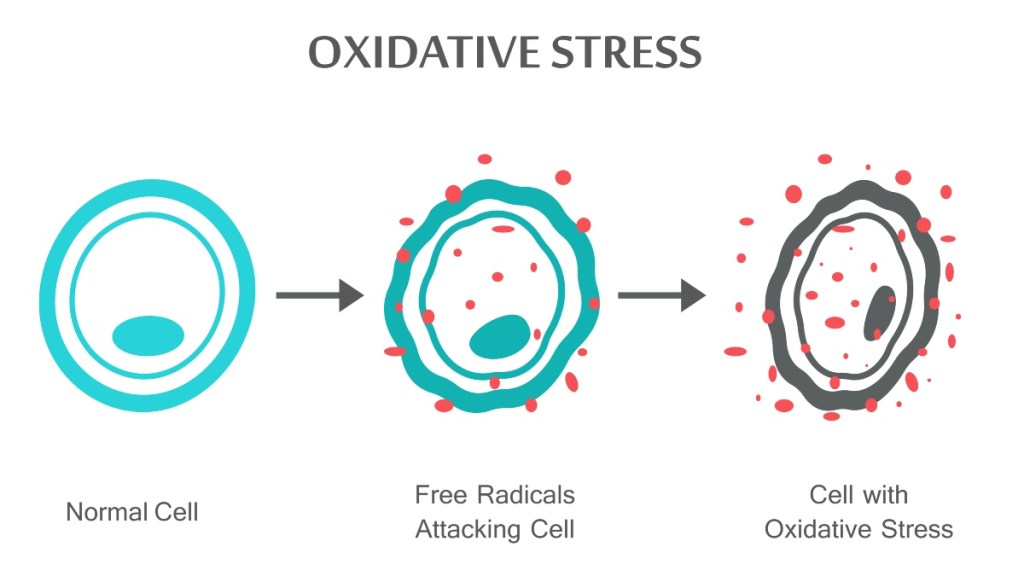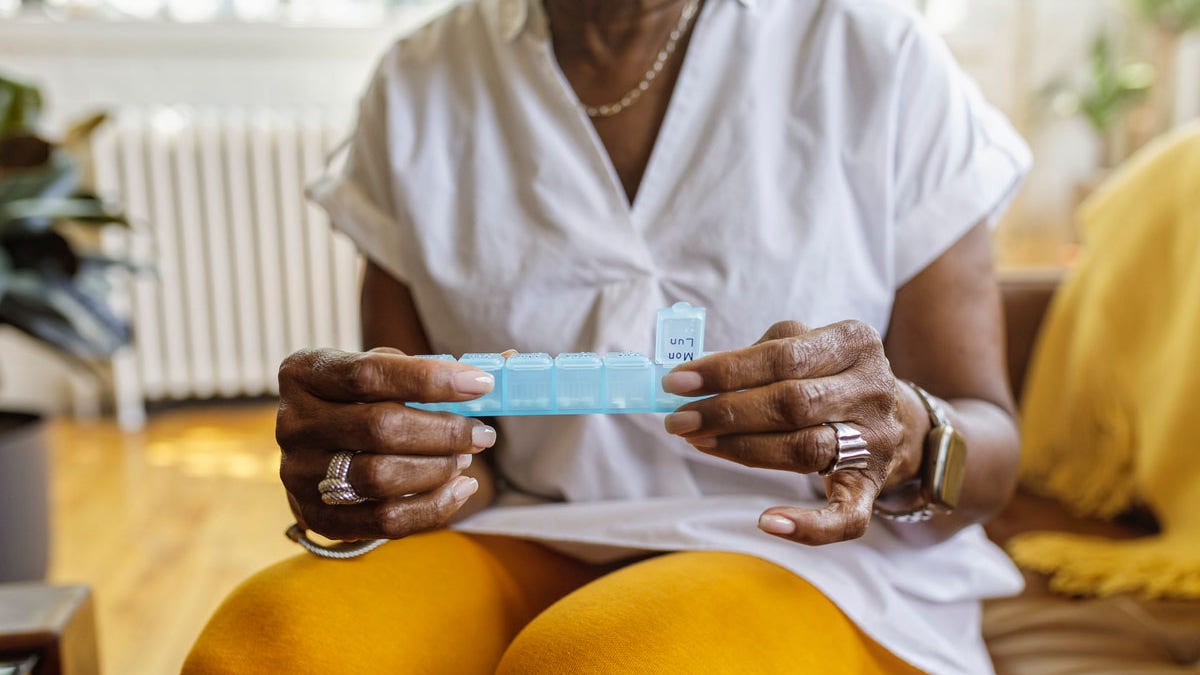Health
Don’t Throw Away Those Onion Skins! Here Are 5 Ways They Improve Your Health

With their distinct and irresistible flavor, onions have long been a culinary favorite in kitchens worldwide. The versatile veggie adds depth and character to everything from soups and stews to stir-fries and sauces. However, we often overlook one part of the onion that is something of an unsung hero — the onion skins! It turns out they’re a treasure trove of nutrients that deliver powerful health benefits. So before tossing them aside, read on to discover how to tap into the power of these often-overlooked gems. As the saying goes, waste not, want not!
What makes onion skins so special?
Even more than the flesh of the vegetable, onion skins are densely packed with nutrients. A comprehensive review of studies in Biomedicine & Pharmacotherapy found that onion peels contain a more concentrated amount of the bioactive compound quercetin. This potent antioxidant fights harmful free radicals that can damage the body’s cells.
According to Cameron Rokhsar, MD, professor of dermatology at Mount Sinai Hospital, quercetin has the potential to reduce inflammation, lower “bad” LDL cholesterol, curb high blood pressure, and soothe anxiety and depression. (Click through to find out how onion skins can even boost hair growth!) And while all onion skins contain the beneficial compound, research reveals you’ll find the highest concentrations of quercetin in red onions, followed by chartreuse onions, then yellow onions.
“Onion skins are also loaded with flavonoids and vitamins A, C, and E, which come with greater antioxidant and anti-inflammatory properties than the flesh of the onion,” explains Dr. Rokhsar. In fact, research shows the outer layer of the onion skin alone accounts for 80% of the vegetable’s flavonoid content.
5 ways onion skins improve your health
This humble superfood packs a payload of health perks. Here are five areas where onion skins really shine:
1. They improve your digestion
“Onion skins are rich in fiber, which aids in digestion, and may help control blood sugar levels,” says Anna Chacon, MD. Whole onions contain about 1.9 g of dietary fiber, but a study published in the Journal of Agricultural and Food Chemistry found that the skin of the onion contains the most concentrated amount of dietary fiber — nearly 66% of vegetable’s total dietary fiber content!
Fiber also adds bulk to your stool, promoting regular bowel movements and preventing constipation. A study in The American Journal of Clinical Nutrition found that 66% of adults with chronic constipation increased the frequency of their bowel movements within 4 weeks of upping their fiber intake.
2. They bolster your immune system
“Onion skins contain various beneficial compounds, including antioxidants. These compounds have been associated with potential health benefits, such as reducing oxidative stress and inflammation and supporting immune function,” says Blen Tesfu, MD.
Immune-hampering oxidative stress occurs when there is an imbalance between the production of free radicals, which are the natural byproducts of your metabolism working, and the body’s ability to detoxify these byproducts. A potent antioxidant, the quercetin found in onion skins neutralizes these free radicals and protects immune cells from damage.
In fact, quercetin is so effective that research in the International Journal of General Medicine suggests it can even help speed COVID recovery. Researchers found that COVID patients who took 1,500 mg. of quercetin daily recovered up to seven days faster than those who didn’t take quercetin. And onion skins are a stellar source of quercetin. Research in The Journal of Science of Food and Agriculture found that onions contain three times as much quercetin as broccoli and six times as much quercetin as apples.

3. They lower “bad” LDL cholesterol
The quercetin found in onion skins has a powerful ability to lower harmful LDL cholesterol. “It works by inhibiting the production of cholesterol in the liver and reducing the absorption of cholesterol from the intestines,” explains Trista Best, RD. Proof it works: Research in the British Journal of Nutrition found quercetin noticeably lowered LDL levels within six weeks. (Click through for more natural ways to lower high LDL cholesterol.)
4. They speed weight loss
Hoping to shed a few extra pounds that have snuck on recently? Onion skins to the rescue! A study in Nutrition Research and Practice found that folks who did nothing other than supplement with onion peel extract daily effortlessly shed 2 lbs. of weight, 1 lb. of fat and 1 inch from their waistlines within 12 weeks. Researchers found onion skins’ quercetin increased resting energy expenditure, or how many calories your body burns while at rest.
5. They tame allergies
Perhaps one of the most powerful benefits of onion skins is their ability to tame both indoor and outdoor allergy flare ups. It comes as no surprise that the credit goes to onion skins’ quercetin. A study in the European Review for Medical and Pharmacological Sciences found that supplementing with quercetin, which has a natural antihistamine action, eases allergy symptoms such as sneezing, runny nose and eye irritation by 50%.
While folks in the study took 100 mg. of quercetin twice daily, you can get the benefits simply by upping your onion intake. In fact, onions are so high in quercetin that a study in Food & Function found consuming a bowl of soup made from red onions boosts your quercetin levels as much as a 544 mg. quercetin supplement does.
The easiest ways to use onion skins
Ready to harness the benefits of antioxidant-rich onion skins? It’s easier than you think, thanks to these simple recipes.
Make onion skin broth
Mary Sabat, RDN, shares a basic onion broth recipe you can use in your favorite soups and stews. Or simply sip it warm as a comforting, nutrient-packed tonic!
Ingredients
- Outer skins of 4-5 onions
- 8 cups of water
- 2 to 3 cloves of garlic (optional)
- Salt and pepper to taste
- Rinse the onion skins thoroughly under cold water. Tip: You can save the skins from your regular cooking in a lidded container and refrigerate until you have enough.
- Add the onion skins, water, and garlic to a large pot.
- Bring the mixture to a boil over medium-high heat. Then reduce the heat to low, cover the with a lid, and let it simmer for about 30 to 40 minutes. This allows the flavor from the onion skins to infuse into the broth.
- Remove from heat and strain the broth through a fine mesh strainer or cheesecloth into a container. Discard the solid onion skins and garlic cloves.
- Season the broth with salt and pepper to taste.
As with any homemade broth, you can get creative by adding other vegetable scraps (such as carrot tops or celery leaves) or your favorite herbs and spices to enhance the flavor and nutritional content.
Make onion powder
A sprinkle of onion skin powder gives dishes such as sauces, marinades, salad dressings, or spice rubs a subtle onion flavor (plus a payload of nutrients!). Add as much or as little as you’d like to your favorite dishes until the flavor is just right.
- Collect onion skins from your regular cooking until you have at least one cup. Rinse the onion skins thoroughly under cold water.
- Spread the cleaned onion skins in a single layer on a baking sheet or a wire rack. Allow them to air dry completely for several days. To speed up the drying process, place the skins in a low-temperature oven (around 150°F) for two to three hours or until they become dry and brittle.
- Transfer dried onion skins to a spice grinder, coffee grinder, or a high-powered blender. Pulse or grind the skins until they turn into a fine powder. You may need to grind them in small batches to achieve the desired consistency.
- For a smoother texture, you can pass the powdered onion skins through a fine-mesh sieve to remove any larger particles. This step is optional but can result in a more refined powder.
- Transfer the powdered onion skins to an airtight lidded container. Store it in a cool, dry place away from direct sunlight. Properly stored, onion skin powder can retain its flavor and quality for at least three months.
Make onion skin tea
“Onion tea can also be made out of the onion skin layers to extract some of these antioxidants,” says Cesar Sauza. Click through to our sister site for a simple onion skin tea recipe.
Read on to check out some of our favorite tricks for cooking with onions!
This content is not a substitute for professional medical advice or diagnosis. Always consult your physician before pursuing any treatment plan.

Health
6 Easy Meal Prep Ideas for Weight Loss You’ll Actually Crave

Use left and right arrow keys to navigate between menu items.
Use escape to exit the menu.
Sign Up
Create a free account to access exclusive content, play games, solve puzzles, test your pop-culture knowledge and receive special offers.
Already have an account? Login
Health
Mini-strokes may cause surprising long-term health issue, experts warn

Prolonged fatigue could indicate poor sleep habits — but it could also be a lingering effect of mini-strokes.
That’s according to a new study from Aalborg University Hospital in Denmark, which was published this week in Neurology, the medical journal of the American Academy of Neurology (AAN).
A mini-stroke — medically known as a transient ischemic attack (TIA) — is a temporary blockage of blood flow to the brain that causes a “short period of symptoms,” according to Mayo Clinic.
STROKE, DEMENTIA AND DEPRESSION SHARE THESE 17 PREVENTABLE RISK FACTORS
The study found that people who experience a TIA are more likely to report prolonged fatigue lasting up to one year.
“Patients with a presumed transient event reported fatigue at levels comparable to a stroke,” lead study author Birgitte Hede Ebbesen, PT, PhD, a physiotherapist at Aalborg University Hospital, told Fox News Digital.
A new study found that people who experience a mini-stroke are more likely to report prolonged fatigue lasting up to one year. (iStock)
The researchers followed 354 people averaging 70 years of age who had experienced a mini-stroke.
Over a 12-month period, the participants reported their level of fatigue in five areas: overall tiredness, physical tiredness, reduced activity, reduced motivation and mental fatigue, according to a university press release.
HEART DISEASE COULD BE PREVENTED WITH THIS ONE SIMPLE TEST
On a scale ranging from 4 to 20 — with 20 being the most fatigued — the participants reported an average score of 12.3 in the two weeks after the mini-stroke, 11.9 at three months, 11.4 at six months and 11.1 at the one-year mark.
Two weeks after the mini-stroke, 61% reported high levels of fatigue. At three, six and 12 months, 54% said they experienced fatigue.

Two weeks after the mini-stroke, 61% reported high levels of fatigue. At three, six and 12 months, 54% said they experienced fatigue. (iStock)
Those who reported prolonged fatigue were twice as likely to have experienced anxiety and/or depression, the study found. Some also reported
“We had encountered fatigue among patients with TIA in clinical settings, so we knew it was there — but the frequency still surprised us,” Modrau told Fox News Digital.
FEELING EXTRA TIRED? THIS VIRUS COULD BE THE CULPRIT, STUDY SUGGESTS
“Long-term fatigue was common in our group of study participants, and we found that if people experience fatigue within two weeks of leaving the hospital, it is likely they will continue to have fatigue for up to a year.”
Based on these findings, Modrau suggests that people diagnosed with a transient ischemic attack should be monitored for lingering fatigue in the ensuing weeks and months.

A mini-stroke — medically known as a transient ischemic attack (TIA) — is a temporary blockage of blood flow to the brain that causes a “short period of symptoms,” according to Mayo Clinic. (iStock)
“This could help us better understand who might struggle with fatigue long-term and require further care.”
The more commonly known symptoms of stroke include face drooping, arm weakness or slurred speech, which usually resolve within a day, according to Modrau. Some patients also reported long-term cognitive issues.
Causes of post-stroke fatigue
Bradley Serwer, an interventional cardiologist and chief medical officer at VitalSolution, an Ingenovis Health company that offers cardiovascular and anesthesiology services to hospitals nationwide, confirmed that fatigue is very common — and sometimes “debilitating” — following a stroke.
“Fatigue is multifactorial and can rarely be attributed to a single cause,” Serwer, who was not involved in the study, told Fox News Digital.
“Fatigue is multifactorial and can rarely be attributed to a single cause.”
The Maryland-based cardiologist shared the following potential reasons for fatigue following a mini-stroke.
Brain healing: “After a stroke, the brain tries to heal itself,” Serwer said. “This process causes the brain to work harder to ‘rewire’ itself, which results in a higher demand for energy. This often leaves patients feeling drained or fatigued.”
Increased inflammation: This can occur due to the immune response following a TIA.

Reduced levels of chemicals like serotonin, dopamine and norepinephrine can result in depression, fatigue or lack of motivation. (iStock)
Lower levels of neurotransmitters in the brain: Reduced levels of chemicals like serotonin, dopamine and norepinephrine can result in depression, fatigue or lack of motivation, according to Serwer.
Sleep disturbances: “These are very common after a stroke and can lead to significant sleep deprivation,” the cardiologist said.
Medications: Drugs used to treat strokes may have adverse side effects, including fatigue. “Betablockers are excellent blood pressure medications and are often prescribed after a stroke or heart attack, but they may cause notable fatigue,” Serwer noted.
Other factors: “Simple tasks may require more mental effort than before the injury,” the cardiologist said. “Depression or anxiety after a stroke can also be a confounding predictor of fatigue.”
CLICK HERE TO SIGN UP FOR OUR HEALTH NEWSLETTER
Potential limitations
The study did have some limitations, the researchers noted.
“It is an observational study and therefore we cannot determine causality,” Modrau said.
“Results are based on self-reported questionnaires, and we cannot be certain that relatives didn’t help fill them out or influence results.”

Drugs used to treat strokes may have adverse side effects, including fatigue. (iStock)
The researchers also did not have information on pre-TIA fatigue levels, although previous studies suggested that it was “much more frequent” after mini-strokes.
Looking ahead, Modrau said she hopes healthcare providers begin to acknowledge lasting fatigue after TIA and provide care pathways for these patients.
For more Health articles, visit www.foxnews.com/health
“Up until now, patients with lasting challenges after TIA have been left alone in many cases,” she told Fox News Digital.
“We as a society should start to acknowledge their difficulties instead of viewing them as ‘the lucky ones,’” she continued. “My aim with this study has been to give these patients a voice – and to start to listen to their struggles.”
Health
We Tried Three Doctor-Approved, Ozempic-Friendly Recipes | Woman's World

Use left and right arrow keys to navigate between menu items.
Use escape to exit the menu.
Sign Up
Create a free account to access exclusive content, play games, solve puzzles, test your pop-culture knowledge and receive special offers.
Already have an account? Login
-

 Austin, TX1 week ago
Austin, TX1 week agoBest Austin Salads – 15 Food Places For Good Greens!
-

 Technology1 week ago
Technology1 week agoMexico is suing Google over how it’s labeling the Gulf of Mexico
-

 Politics1 week ago
Politics1 week agoDHS says Massachusetts city council member 'incited chaos' as ICE arrested 'violent criminal alien'
-

 Politics1 week ago
Politics1 week agoPresident Trump takes on 'Big Pharma' by signing executive order to lower drug prices
-

 Education1 week ago
Education1 week agoA Professor’s Final Gift to Her Students: Her Life Savings
-

 Education1 week ago
Education1 week agoVideo: Tufts Student Speaks Publicly After Release From Immigration Detention
-

 News6 days ago
News6 days agoAs Harvard Battles Trump, Its President Will Take a 25% Pay Cut
-

 News1 week ago
News1 week agoWhy Trump Suddenly Declared Victory Over the Houthi Militia













